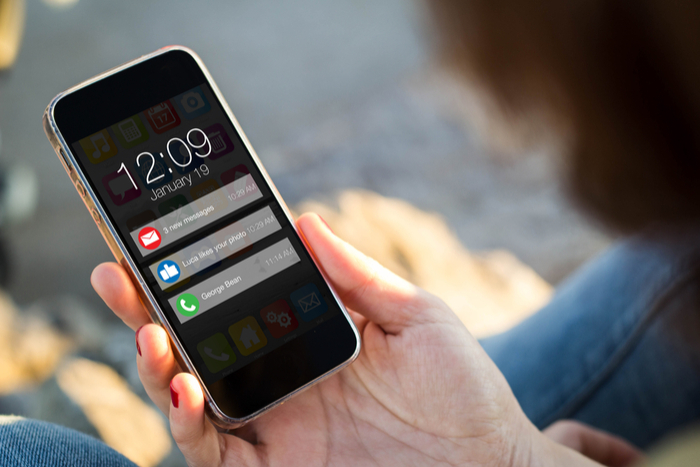How to overcome notification overload.

Studies have shown that receiving text messages and mobile notifications trigger the release of dopamine. In lay terms, this means that notifications make us feel good when we receive them—and we may have negative feelings when we don’t.
If that sounds like the symptoms of addiction, you’re not wrong. Notifications have an addictive quality and may put our decision-making skills at risk, too.
Additionally, too many alerts can cause anxiety. Think of work emails blinking on your screen during a date. Or incessant Slack alerts, Facebook messages, and news updates.
In short, notifications are driving us mad. Here’s a look at what they do and what we can do to reclaim at least some of our sanity.
How to overcome notification overload
Negative effects
Smartphone notifications can trigger the release of the stress hormone, cortisol. Cortisol increases your heart rate, makes your palms sweaty, and tenses up your muscles. Cortisol might even harm brain chemistry and cause stem cells to malfunction.
And, if you don’t believe notifications are wreaking havoc on our collective well-being, it’s worth pointing out that both Apple and Android have developed features like the do-not-disturb mode and time monitoring features.
Apple’s iOS 12 now comes with enhancements to DND mode—including a bedtime mode that dims the display. They also hide notifications on the lock screen until morning rolls around. Here’s an account from someone who states that the Apple Watch amplified their notification anxiety.
So, how do we maintain a healthy relationship with technology, when cutting it out altogether isn’t realistic?
Turn it all off
Turn off notifications for specific apps or for everything.
Yeah, yeah it sounds impossible, sure. But do you need to see each item pass through your home screen?
The thing is, no one will be contacting you via Twitter or email if there’s a real emergency. So, disable the push notifications and breathe a bit easier.

Comments
Post a Comment